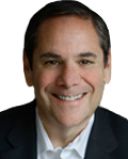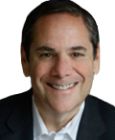My father knew who he was—and who he wasn’t. As a child growing up in the Great Depression, he knew that the only road to survival was hard work and perseverance.
He didn’t think in terms of worldly success. As a Julliard-trained musician and armed with a graduate degree in elementary education, he taught sixth grade for almost 40 years.
He was also a father, carpenter, painter, gardener, electrician and arbiter of right and wrong. He meted out punishment completely convinced that his way was not only the best way, but the ONLY way. But most of all, he was a model of commitment to his values—work hard and do whatever it takes to support your family.
He had opportunities to be promoted to Principal of his school, but was unwilling to play what he saw as political games to capture the support of the selection committee. He was stubborn and self-righteous in his belief that he would be recognized for his accomplishments without having to bring attention to them or “kiss up”.
It’s a challenge today, to live your values. To even spend the time to decide what’s most important. So many distractions interfere—peer pressure, media buzz, a constantly moving definition of “success”. In my father’s time, success equaled survival. There was no time to blame others or contemplate his life satisfaction—he and his peers were too busy working multiple jobs.
It meant that I didn’t grow up worrying about survival (thank you, Dad), but I did see that hard work accounted for a lot. There was no complaining or griping in our home—“down time” was spent mowing, painting, building, fixing and taking care of household chores. He never cared about the car he drove as long as it was large enough to carry his stringed bass. He wouldn’t know designer clothes from work clothes. All that mattered was taking care of his family in the way that made most sense to him.
We all grow up modeling our parents—and not just the positive traits. So while I grew up working hard, I also developed an uncompromising belief in my “rightness”, becoming overbearing and close-minded. I became even more polarizing when I shared my high opinions of my opinions.
Eventually, I saw in myself a carbon copy of my father—and knew it was time to reassess. To hold on to the important and meaningful traits and—quite deliberately—reject the rest. It was a time of difficult transition, but I would do it all over again. Staring head-on into the flaws of your parents (and yourself) becomes an essential tool to create great relationships and your own happiness.
Today, I look to my own children with hope that they have found the good stuff and rejected the traits that do not serve them. They are comfortable with who they are, but flexible enough to see themselves honestly.
I celebrate my father’s memory when I see my children’s enduring sense of purpose and pride in themselves and their hard work. My father would be so proud.


